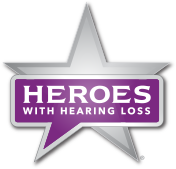Is Your Military Training Getting in the Way of Your Treatment?
As a veteran, you’ve given a lot in service to your country. You’ve earned the medical care and benefits available to you. So why aren’t you seeking treatment for the health conditions you’re enduring as a result of your time in uniform?
As it turns out, you’re not alone. Many veterans don’t get the assistance they have earned and deserve partially because of conditioning and behaviors they learned in the military. As a matter of fact, according to several studies, including one from the RAND Center for Military Health Policy Research, a number of barriers can prevent veterans from seeking treatment for injuries that are not immediately noticeable. Among the leading reasons are embarrassment, shame or fear, and stigmas associated with their conditions.
That means, while your military training has probably served you well overall, when it comes to getting treatment, your warrior mentality could put you in a catch-22.
Let’s take a look at some common strengths and principles you’ve nurtured through your training then ask yourself whether they could be creating obstacles for you now.
Selfless Service
In the military, your team’s mission comes first. “Service before self” means not letting personal problems get in the way of getting the job done. Put simply – it’s better to “suck it up” than burden the team with your problems.
Question: Am I unable or unwilling to see or admit to changes in my behavior or overall health that others have noticed?
Pride & Invincibility
A successful military career means having confidence in your abilities and getting satisfaction from being more self-reliant and capable than the average person. However, the other side of that coin can mean it’s difficult to acknowledge health problems or the labels and stigmas that go along with them. Especially if that means admitting that you aren’t the same Soldier, Sailor, Airman, Marine or Coast Guardsman that you were when you first joined.
Question: Would I rather be inconvenienced than use visible assistive technology, such as eyeglasses, hearing aids, or canes?
Brotherhood / Fraternity
In the military, building tight-knit bonds and unwavering trust with one another is a crucial aspect of success, particularly down range in hostile environments. The downside to becoming used to this level of camaraderie can be a hesitancy to trust anyone who doesn’t have a military background. Sometimes, this can even extend to highly-trained professionals, such as healthcare providers or counselors. This can lead to avoiding treatment or withholding information from healthcare professionals because you don’t believe anything can be done about it anyway.
Question: Have I put off treatment because I don’t think anyone is capable of providing me with practical solutions?
If you answered “yes” to any of the questions above, you might want to take a second look at how your warrior mentality is affecting the way you approach your health and well-being. If you’re ready to find ways to overcome obstacles created by hearing loss, follow the steps here.
 Heroes With Hearing Loss
Heroes With Hearing Loss